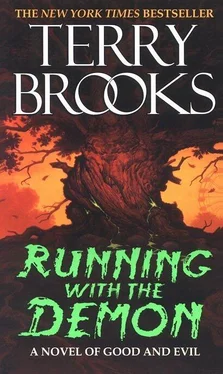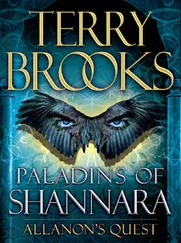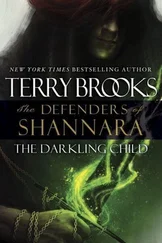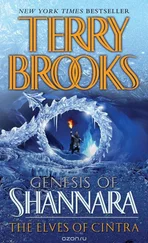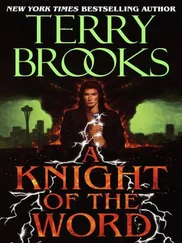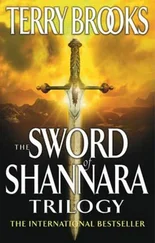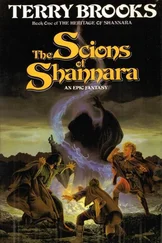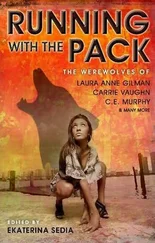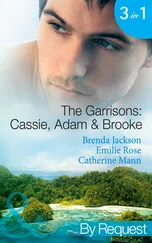But for as much as he might appear otherwise, he was still a knight, the best that the people of the world were going to get and better perhaps than they deserved. For ten long years he had sought to protect them, a paladin in their cause. There were demons loose in the world, things of such evil that if they were not destroyed they would destroy mankind. Already the feeders were responding to them, coming out of their hiding places, daring to appear even in daylight, feeding on the dark emotions that the demons fostered in humans everywhere. The demons were skillful at their work, and the humans they preyed upon were all too eager to be made victims. The demons could be all things to all people just long enough to blacken their hearts, and by the time the people realized what had happened to them, it was too late. By then the feeders were devouring them.
The Knight of the Word had been sent to put an end to the demons. His quest had taken him from one end of the country to the other countless times over, and still he journeyed on. Sometimes, in his darker moments, he thought his quest would never end. Sometimes he wondered why he had accepted it at all. He had given up everything in its cause, his life irrevocably changed. The dangers it presented were more formidable than any faced by those who had ridden under Arthur's banner. Nor did he have a Round Table and fellow knights awaiting his return–no king to honor him or lady to comfort him. He was all alone, and when his quest was finished, he would still be so.
His name was John Ross.
He retrieved his duffel bag from the driver, thanked him for his trouble, then leaned on his staff and looked about as the bus door closed, the air brakes released, and his silver charger slowly pulled away. He was at the corner of Fourth Street and Avenue A, the hotel before him, a paint store across one street and a library across the other. Kitty–corner was a gas station and tire shop. All of the buildings were run–down and bleached by the sun, washed of every color but beige and sand, their bricks crumbling and dry, their painted wood sidings peeling and splintered with the heat. The concrete of the sidewalks and streets radiated with the sun's glare, and where the street had been patched with asphalt it reflected a damp, shimmering black.
He found himself staring down Fourth Street to its junction with First Avenue, remembering what he had seen in his dream. His eyes closed against the memory.
He picked up his duffel, limped up the steps to the front door of the hotel, and pushed his way inside. A blast of cool air from the air conditioner welcomed him, then quickly turned him cold. He checked himself in at the desk, taking the cheapest room they had, booking it for a week because the rate was less than for the three days he required. He was frugal with his money, for he lived mostly on the little his parents had left him when they died. Leaving his duffel and his knapsack with the desk clerk, who offered to carry them to his room, he picked up one of the slim pamphlets entitled "Hopewell—We're Growing Your Way" that were stacked next to the register, moved over to the tiny lobby sitting area, and lowered himself into one of the worn wing–back chairs.
The cover of the pamphlet was a collage of pictures-a cornfield, a park, a swimming pool, the downtown, and one of the plants at MidCon Steel. Inside was a rudimentary map. He read briefly that Hopewell had a population of fifteen thousand, was situated in the heart of Reagan country (both the town where Ronald Reagan was born and the one in which he grew up were within twenty miles), boasted more than seventy churches, offered easy freeway access to major cities in all directions, and was the home of Midwest Continental Steel, once the largest independently owned steel company in America. The pamphlet went on to say that while more than twenty percent of the working force of Hopewell was employed at MidCon Steel, the community was a source of employment for others as a result of a diverse and thriving agricultural and business economy.
The desk man returned with his room key. Not another soul had passed through the lobby in the time he had been gone. He seemed grateful when John Ross gave him a dollar for his trouble. Ross finished with the pamphlet and tucked it into the pocket of his jeans with his room key. He sat for a moment in the cool of the lobby, listening to the hum of the air–conditioning, looking down at his hands. He did not have much time to do what was needed. He knew enough from his dreams to make a start, but the dreams were sometimes deceptive and so could not be trusted completely. Nor were the dream memories of his future more than rudimentary. Nor were they stable; they tended to shift with the passing of events and the changing of circumstances. It was like trying to build with water and sand. Sometimes he could not tell which part of his life he was remembering or even at which point of time the events had occurred or would occur. Sometimes he thought it would drive him mad.
He hoisted himself out of the armchair, an abrupt, decisive movement. Leaning on his staff, he went out the front door into the heat and turned up Fourth Street toward the heart of the downtown. He walked slowly and methodically along the gauntlet of burning concrete, the sidewalks baking in the already near one–hundred–degree heat. The buildings had a flattened feel to them, as if weighted by the heat, as if compressed. The people he passed on the streets looked drained of energy, squinting into the glare from behind sunglasses, , walking with their heads lowered and their shoulders hunched. He crossed Locust Street, the north–south thoroughfare that became State Route 88 beyond the town limits, continued on to Second Avenue, and turned down Second toward Third Street. Already he could see the red plastic sign on the building ahead that read JOSIE'S.
A church loomed over him, providing a momentary patch of shade. He slowed and looked up at it, studying its rust–colored stone, its stained glass, its arched wooden doors, and its open bell tower. A glass–enclosed sign situated on the patch of lawn at the corner said it was the First Congregational Church. Ralph Emery was the minister. Services were Sunday at 10:30 A. M. with Christian Education classes at 9:15. This Sunday's message was entitled, "Whither Thou Goest." John Ross knew it would be cool and silent inside, a haven from the heat and the world. It had been a long time since he had been in church. He found himself wanting to see how it would feel, wondering if he could still say his prayers in a slow, quiet way and not in a rush of desperation. He wondered if his God still believed in him.
He stood staring at the church for a moment more, then turned away. His relationship with God would have to wait. It was the demon he hunted who demanded his attention now, the one he had come to Hopewell to destroy. He limped on through the midmorning heat, thinking on the nature of his adversary. In a direct confrontation, he was certain he would prevail. But the demon was clever and elusive; it could conceal its identity utterly. It was careful never to permit itself to be fully engaged. Time and again John Ross had thought to trap it, to unmask it and force it to face him, and every time the demon had escaped. Like a sickness that passed itself from person to person, the demon first infected them with its madness, then gave them over to the feeders to devour. Until now Ross had searched in vain for a way to stop it. It had been difficult even to find it, virtually impossible to lay hands on it. But that was about to change. The dreams had finally revealed something useful to him, something beyond the haunting rain of the future that awaited should he fail, something so crucial to the demon's survival that it might prove its undoing.
John Ross reached the comer of Second Avenue and Third Street and waited for the WALK sign. When it flashed on, he crossed over to Josie's, limped to the front door, and pushed his way inside.
Читать дальше
